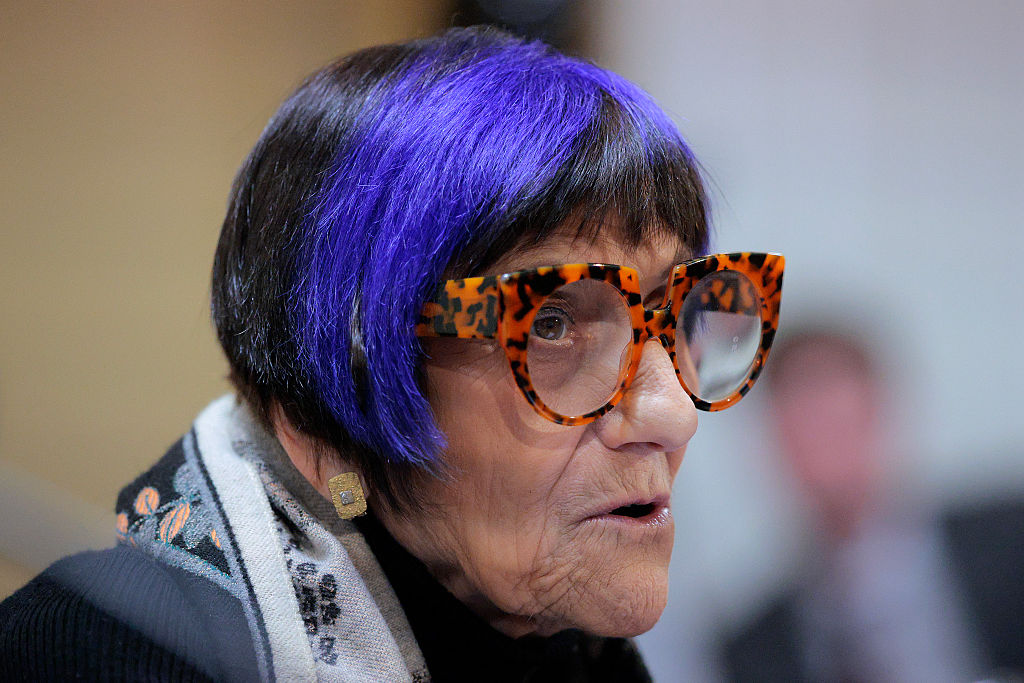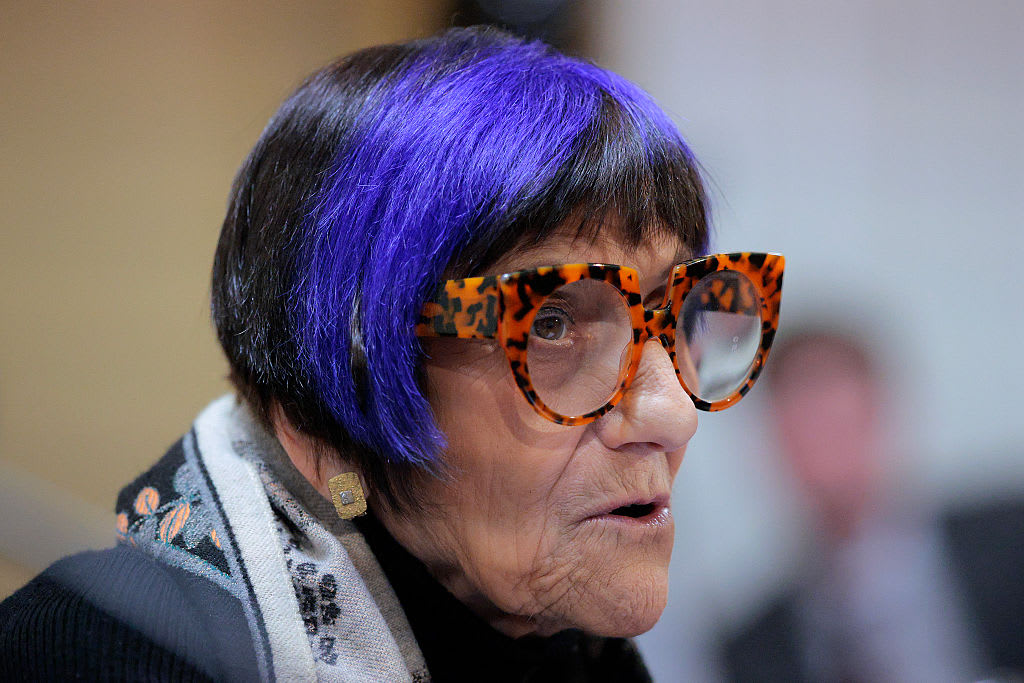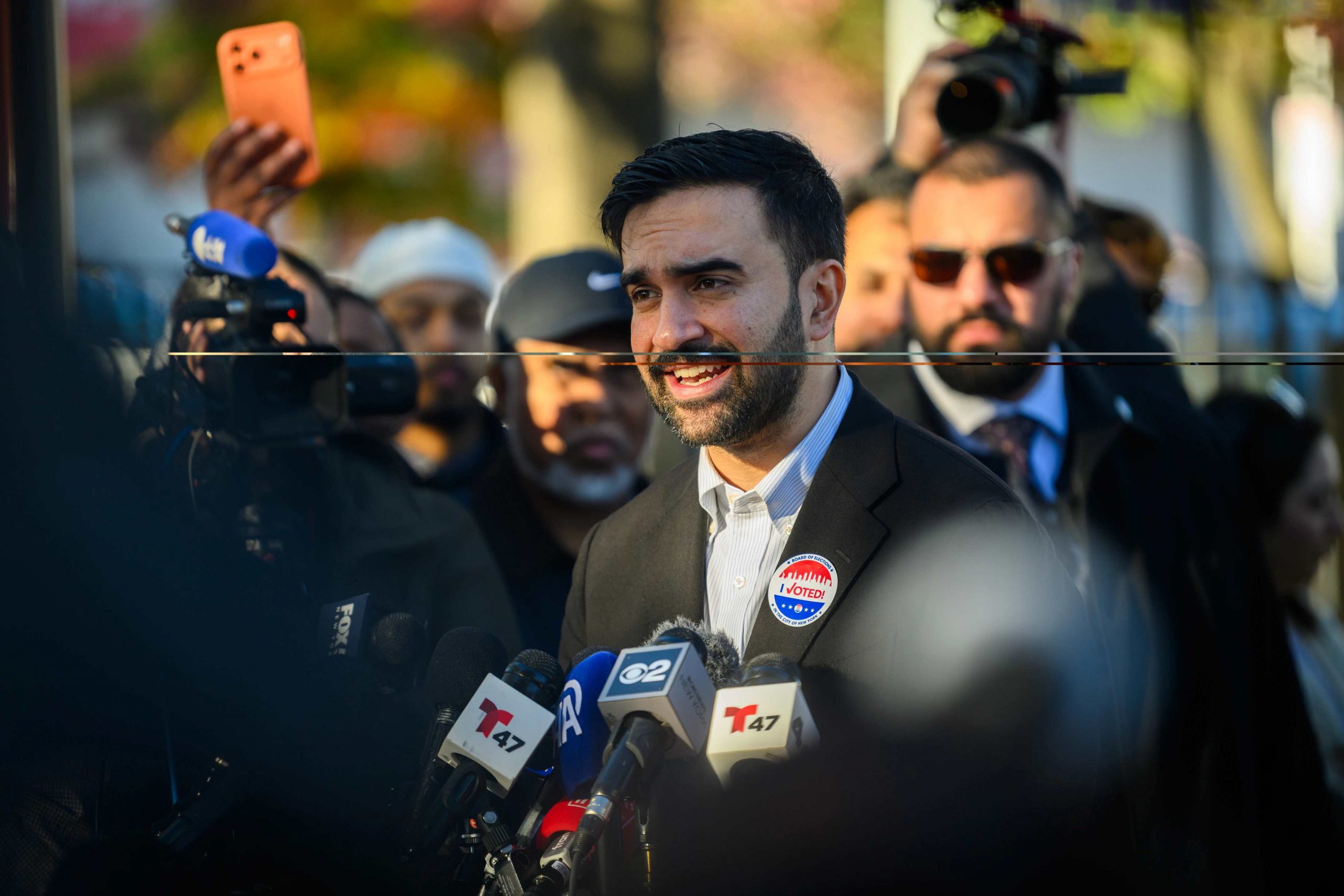
Catholic U.S. House Democrats cited Church teaching in defense of the dignity of migrants as Trump administration officials defend immigration enforcement.


Catholic U.S. House Democrats cited Church teaching in defense of the dignity of migrants as Trump administration officials defend immigration enforcement.

![Michael Reagan, Catholic son of U.S. President Ronald Reagan, dies at 80 #Catholic
Republican strategist Michael Reagan speaks at a get-out-the-vote rally for U.S. Republican Senate candidate Sharron Angle featuring U.S. Sen. John McCain at the Orleans, Friday, Oct. 29, 2010, in Las Vegas. | Credit: Ethan Miller/Getty Images
Jan 7, 2026 / 10:07 am (CNA).
Michael Reagan, the adopted son of former U.S. President Ronald Reagan and a longtime conservative activist who spoke publicly about his Catholic faith, died on Jan. 4 at 80 years old.Reagan’s family announced his death on Jan. 6 via Young America’s Foundation, which operates out of the “Reagan Ranch” near Santa Barbara, California. The announcement said Reagan died in Los Angeles “surrounded by his entire family.”“Michael was and will always remain a beloved husband, father, and grandpa,” the statement said, with the family expressing grief over “the loss of a man who meant so much to all who knew and loved him.”He is survived by his wife, Colleen, his son Cameron and his daughter Ashley. Born March 18, 1945, Reagan was adopted by Ronald Reagan and his then-wife Jane Wyman shortly thereafter. He was known throughout the 2000s as the host of “The Michael Reagan Show,” a nationwide radio program. Reagan was a Catholic through Wyman, a legendary movie star who herself was a third order Dominican. In a 2024 interview with EWTN News’ ChurchPOP, he pointed out that “a lot of people don’t know” of Wyman’s Catholic background. Joking when comparing his father’s Protestant beliefs with his mother’s Catholic faith, Reagan said: “When you get [to heaven], if you see my dad, look three floors above him [to see my mother].”Reagan told ChurchPOP Editor Jacqueline Burkepile that a large part of his family is Catholic. “My whole family is [Catholic],” he said. “My wife, Colleen, converted to Catholicism a few years ago. My son Cameron, his wife, Susanna, my daughter Ashley [are all Catholic].” His grandchildren have been baptized in the Church as well, he said.“So we got everybody on the planet,” he joked. In a Jan. 6 reflection, Reagan Ranch Director Andrew Coffin said Reagan “worked alongside Young America’s Foundation to share his father’s legacy and ideas with new generations.”In a separate statement, Young America’s Foundation President Scott Walker said that Reagan “was such a wonderful inspiration to so many of us.” Walker said that though Reagan had been optimistic about overcoming his recent health challenges, “unfortunately for all of us, the Good Lord decided to call him home sooner.” “That said, he and I also discussed his faith and devotion to Jesus,” Walker said. “That should give us all comfort during this difficult time as he is with the Lord.”](https://unitedyam.com/wp-content/uploads/2026/01/michael-reagan-catholic-son-of-u-s-president-ronald-reagan-dies-at-80-catholic-republican-strategist-michael-reagan-speaks-at-a-get-out-the-vote-rally-for-u-s-republican-senate-candidate-shar-scaled.jpg)

Jan 7, 2026 / 10:07 am (CNA).
Michael Reagan, the adopted son of former U.S. President Ronald Reagan and a longtime conservative activist who spoke publicly about his Catholic faith, died on Jan. 4 at 80 years old.
Reagan’s family announced his death on Jan. 6 via Young America’s Foundation, which operates out of the “Reagan Ranch” near Santa Barbara, California. The announcement said Reagan died in Los Angeles “surrounded by his entire family.”
“Michael was and will always remain a beloved husband, father, and grandpa,” the statement said, with the family expressing grief over “the loss of a man who meant so much to all who knew and loved him.”
He is survived by his wife, Colleen, his son Cameron and his daughter Ashley.
Born March 18, 1945, Reagan was adopted by Ronald Reagan and his then-wife Jane Wyman shortly thereafter. He was known throughout the 2000s as the host of “The Michael Reagan Show,” a nationwide radio program.
Reagan was a Catholic through Wyman, a legendary movie star who herself was a third order Dominican. In a 2024 interview with EWTN News’ ChurchPOP, he pointed out that “a lot of people don’t know” of Wyman’s Catholic background.
Joking when comparing his father’s Protestant beliefs with his mother’s Catholic faith, Reagan said: “When you get [to heaven], if you see my dad, look three floors above him [to see my mother].”
Reagan told ChurchPOP Editor Jacqueline Burkepile that a large part of his family is Catholic.
“My whole family is [Catholic],” he said. “My wife, Colleen, converted to Catholicism a few years ago. My son Cameron, his wife, Susanna, my daughter Ashley [are all Catholic].” His grandchildren have been baptized in the Church as well, he said.
“So we got everybody on the planet,” he joked.
In a Jan. 6 reflection, Reagan Ranch Director Andrew Coffin said Reagan “worked alongside Young America’s Foundation to share his father’s legacy and ideas with new generations.”
In a separate statement, Young America’s Foundation President Scott Walker said that Reagan “was such a wonderful inspiration to so many of us.”
Walker said that though Reagan had been optimistic about overcoming his recent health challenges, “unfortunately for all of us, the Good Lord decided to call him home sooner.”
“That said, he and I also discussed his faith and devotion to Jesus,” Walker said. “That should give us all comfort during this difficult time as he is with the Lord.”
Read More![Arthur Brooks at SEEK26: ‘Your job isn’t to win arguments, it’s to win a soul’ #Catholic
Arthur Brooks gives a keynote address at SEEK 2026 on Jan. 4, 2026, in Columbus, Ohio. | Credit: Madalaine Elhabbal/CNA
Jan 6, 2026 / 12:29 pm (CNA).
New York Times bestselling author and Harvard professor Arthur Brooks encouraged attendees at SEEK 2026 to resist the temptation as missionaries to “fight fire with fire.”In his Jan. 4 keynote speech in Columbus, Ohio, Brooks said the world “is not just a cold world” but “a world that attacks you.” In this context, he said, it can be challenging not to fight back.However, he said, “your job isn’t to win arguments, it’s to win a soul.”Brooks teaches at the Harvard Kennedy School and Harvard Business School and has written multiple books on finding happiness and meaning in life, including “From Strength to Strength” and “Build the Life You Want,” which he coauthored with Oprah Winfrey. He also writes a column for The Free Press.Some 26,000 attendees have gathered through Jan. 5 in Columbus, Denver, and Fort Worth, Texas, for the SEEK 2026 conference organized by FOCUS.“The spirit of the missionary will take you into the heart of a culture war,” Brooks said. “And in that culture war, you won’t win with violence … as you can win with love.” Brooks recounted his experience giving a talk in Manchester, New Hampshire, in 2014 for an audience he said was “a very ideologically oriented group.”According to Brooks, he was the only speaker out of the 15 present who was not a presidential candidate. He said that during his address, he told his audience: “You’ve been hearing from political candidates who want your vote. And what they’re telling you is that you’re right and the people who disagree with you are stupid people and hate America, but I want you to remember something. Those people, they’re your neighbors, and they’re your family … It’s not that they hate America, it’s that they disagree with you.”When acting as a missionary, he said, the goal is to persuade people. “If you want to persuade them, you can’t do that with hatred, because nobody has ever been insulted into agreement,” Brooks said.‘Entering mission territory’Brooks concluded by telling about a retreat center that he and his wife, Ester, visit when they give marriage preparation. Inside the chapel of the retreat center, he said, there is a sign over the door to exit the chapel that reads: “You are now entering mission territory.”“So as you leave this beautiful, beautiful gathering tomorrow, the signs on the door of your hotel or this conference facility, any place that you find yourself as you leave this city, and effectively for the last time tomorrow, is that you’re entering mission territory,” Brooks said. “Let’s set the world on fire together.”Katie Tangeman, a sophomore at Northwest Missouri State University, said she came away from Brooks’ talk motivated to “just take a step back whenever I’m feeling frustrated or annoyed with somebody, or if they’re attacking me, to just see them as a beloved son or daughter of God and approach them with love instead of the contempt and hate that [Brooks] was talking about.”“Because that’s not being a good Christian,” she added.“I want to say the biggest thing I took away from Arthur Brooks’ talk tonight, his keynote speech, [is] that you can change the trajectory of how a conversation goes by battling it with kindness in a way,” said Andrew Stuart, an agricultural business major, also at Northwest Missouri State.](https://unitedyam.com/wp-content/uploads/2026/01/arthur-brooks-at-seek26-your-job-isnt-to-win-arguments-its-to-win-a-soul-catholic-arthur-brooks-gives-a-keynote-address-at-seek-2026-on-jan-4-2026-in-colu.jpg)

Jan 6, 2026 / 12:29 pm (CNA).
New York Times bestselling author and Harvard professor Arthur Brooks encouraged attendees at SEEK 2026 to resist the temptation as missionaries to “fight fire with fire.”
In his Jan. 4 keynote speech in Columbus, Ohio, Brooks said the world “is not just a cold world” but “a world that attacks you.” In this context, he said, it can be challenging not to fight back.
However, he said, “your job isn’t to win arguments, it’s to win a soul.”
Brooks teaches at the Harvard Kennedy School and Harvard Business School and has written multiple books on finding happiness and meaning in life, including “From Strength to Strength” and “Build the Life You Want,” which he coauthored with Oprah Winfrey. He also writes a column for The Free Press.
Some 26,000 attendees have gathered through Jan. 5 in Columbus, Denver, and Fort Worth, Texas, for the SEEK 2026 conference organized by FOCUS.
“The spirit of the missionary will take you into the heart of a culture war,” Brooks said. “And in that culture war, you won’t win with violence … as you can win with love.” Brooks recounted his experience giving a talk in Manchester, New Hampshire, in 2014 for an audience he said was “a very ideologically oriented group.”
According to Brooks, he was the only speaker out of the 15 present who was not a presidential candidate. He said that during his address, he told his audience: “You’ve been hearing from political candidates who want your vote. And what they’re telling you is that you’re right and the people who disagree with you are stupid people and hate America, but I want you to remember something. Those people, they’re your neighbors, and they’re your family … It’s not that they hate America, it’s that they disagree with you.”
When acting as a missionary, he said, the goal is to persuade people. “If you want to persuade them, you can’t do that with hatred, because nobody has ever been insulted into agreement,” Brooks said.
Brooks concluded by telling about a retreat center that he and his wife, Ester, visit when they give marriage preparation. Inside the chapel of the retreat center, he said, there is a sign over the door to exit the chapel that reads: “You are now entering mission territory.”
“So as you leave this beautiful, beautiful gathering tomorrow, the signs on the door of your hotel or this conference facility, any place that you find yourself as you leave this city, and effectively for the last time tomorrow, is that you’re entering mission territory,” Brooks said. “Let’s set the world on fire together.”
Katie Tangeman, a sophomore at Northwest Missouri State University, said she came away from Brooks’ talk motivated to “just take a step back whenever I’m feeling frustrated or annoyed with somebody, or if they’re attacking me, to just see them as a beloved son or daughter of God and approach them with love instead of the contempt and hate that [Brooks] was talking about.”
“Because that’s not being a good Christian,” she added.
“I want to say the biggest thing I took away from Arthur Brooks’ talk tonight, his keynote speech, [is] that you can change the trajectory of how a conversation goes by battling it with kindness in a way,” said Andrew Stuart, an agricultural business major, also at Northwest Missouri State.
Read More

Jan 5, 2026 / 17:32 pm (CNA).
Bishop Robert Barron, founder of the Word on Fire ministry, criticized New York City Mayor Zohran Mamdani for promising constituents “the warmth of collectivism” in his Jan. 1 inaugural address.
Mamdani, who defeated two candidates with nearly 51% of the vote in the November election, won on a democratic socialist platform. His plans include free buses, city-owned grocery stores, no-cost child care, raising the minimum wage to $30 per hour, and freezing the rent for people in rent-stabilized apartments.
“We will replace the frigidity of rugged individualism with the warmth of collectivism,” Mamdani said in his inaugural address.
“If our campaign demonstrated that the people of New York yearn for solidarity, then let this government foster it,” he said. “Because no matter what you eat, what language you speak, how you pray, or where you come from — the words that most define us are the two we all share: New Yorkers.”
Barron, bishop of the Diocese of Winona-Rochester, Minnesota, said in a post on X that this line “took my breath away.”
“Collectivism in its various forms is responsible for the deaths of at least 100 million people in the last century,” Barron said.
“Socialist and communist forms of government around the world today — Venezuela, Cuba, North Korea, etc. — are disastrous,” he added. “Catholic social teaching has consistently condemned socialism and has embraced the market economy, which people like Mayor Mamdani caricature as ‘rugged individualism.’ In fact, it is the economic system that is based upon the rights, freedom, and dignity of the human person.”
“For God’s sake, spare me the ‘warmth of collectivism,’” Barron concluded.
Both socialism and communism have been condemned by many popes, first by Pope Pius IX in his 1849 encyclical Nostis et Nobiscum, just one year after Karl Marx published “ The Communist Manifesto.”
The foundation of Catholic social teaching rests on Pope Leo XIII’s 1891 encyclical Rerum Novarum.
In the encyclical, Leo denounced socialism and communism, and also condemned poor labor conditions for the working class and employers “who use human beings as mere instruments for moneymaking.”
“Each needs the other: Capital cannot do without labor, nor labor without capital,” the 19th century pontiff wrote. “Mutual agreement results in the beauty of good order, while perpetual conflict necessarily produces confusion and savage barbarity.”
Pope Pius XI, in his 1931 encyclical Quadragesimo Anno, wrote of the importance of private property, that man must be able to “fully cultivate and develop all his faculties unto the praise and glory of his Creator; and that by faithfully fulfilling the duties of his craft or other calling he may obtain for himself temporal and at the same time eternal happiness.”
Socialism, he said, is “wholly ignoring and indifferent to this sublime end of both man and society, affirms that human association has been instituted for the sake of material advantage alone.”
“Religious socialism, Christian socialism, are contradictory terms; no one can be at the same time a good Catholic and a true socialist,” Pius XI wrote.
Pope Benedict XVI differentiated socialism and democratic socialism. In 2006, he wrote: “In many respects, democratic socialism was and is close to Catholic social doctrine and has in any case made a remarkable contribution to the formation of a social consciousness.”
Though, in his 2005 encyclical Deus Caritas Est, Benedict XVI wrote that government should not control everything but that society needs a state that, “in accordance with the principle of subsidiarity, generously acknowledges and supports initiatives arising from the different social forces and combines spontaneity with closeness to those in need.”
Pope Francis has criticized Marxist ideology but also “radical individualism,” which he said in his 2020 encyclical Fratelli Tutti “makes us believe that everything consists in giving free rein to our own ambitions, as if by pursuing ever greater ambitions and creating safety nets we would somehow be serving the common good.”
In 2024, Francis encouraged cooperation and dialogue between Marxists and Christians.
The Catechism of the Catholic Church teaches: “The Church has rejected the totalitarian and atheistic ideologies associated in modem times with ‘communism’ or ‘socialism.’ She has likewise refused to accept, in the practice of ‘capitalism,’ individualism and the absolute primacy of the law of the marketplace over human labor.”
Read More